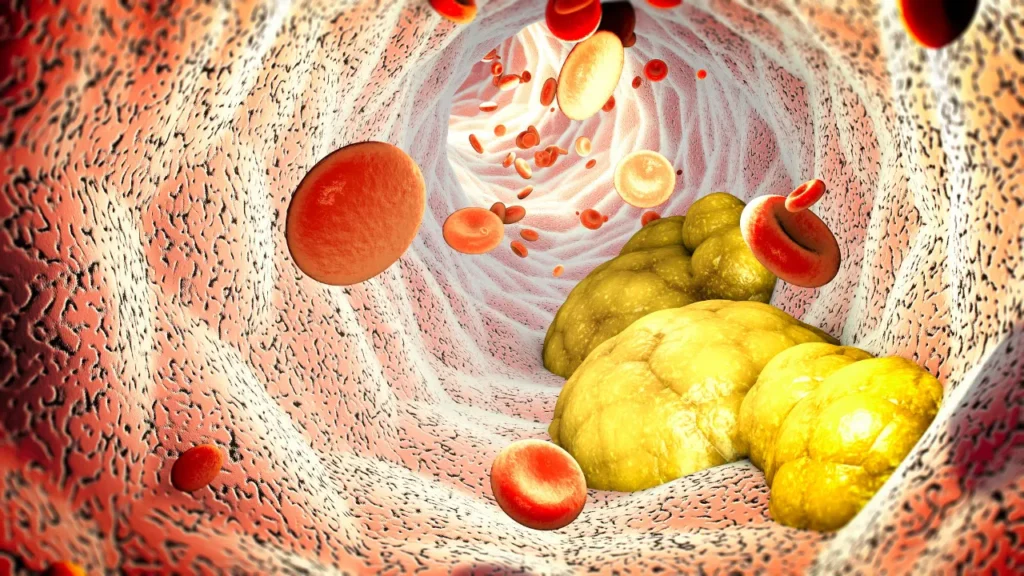A natural polymer generated from brown seaweed species like Luminaria, Ascophyllum, and Macrocystis, algin is also referred to as alginic acid or sodium alginate. Due to its distinctive qualities, including its ability to form gels, viscosity, and water retention capacity, it has a wide range of applications in the food, pharmaceutical, and textile sectors. Algin has undergone substantial research on its ideal dosage, side effects, and potential interactions with other substances due to rising interest in its potential health advantages as a dietary supplement. The goal of this article is to give a thorough review of algin’s chemical and physiological mechanism of action, health advantages, and appropriate dosage.
You May Also Like:
Ginger: Benefits, Dosage, Side Effects, Drug Interactions, and Other Important Information
American Elder: Benefits, Dosage, Side Effects, Drug Interactions, And Other Important Information
Algin: Benefits, Dosage, Side Effects, Drug Interactions, And Other Important Information is an original (NootropicsPlanet) article.
Nature of Algin
Algin is a natural polysaccharide generated from brown seaweed species, making it a desirable choice for various uses, including nutritional supplements. Its unique qualities, which include the capacity to create gels, raise viscosity, and hold water, contribute to the extensive list of potential health advantages.
Health Benefits of Algin
- Weight control: Algin can help control weight by boosting satiety and lowering calorie intake. Due to its high viscosity and ability to retain water, it can expand the volume of the stomach and cause a protracted feeling of fullness. Algin also delays intestinal transit and stomach emptying, which can help people feel fuller for longer. Numerous clinical studies have shown that algin supplementation has beneficial effects on body weight, body mass index (BMI), and waist circumference in overweight and obese people.
- Glycemic control: By preventing the digestion and absorption of carbs, algin has been proven to lower postprandial blood glucose levels. Its high viscosity can slow intestinal transit and stomach emptying, which will slow the release of glucose into the bloodstream. Algin can also create a gel-like barrier in the intestine that restricts glucose’s ability to diffuse and pass through the intestinal epithelium. For people with type 2 diabetes or poor glucose tolerance, these effects may be advantageous.
- Lowering cholesterol: Algin can bind to bile acids in the colon, which may lead to less bile acid reabsorption and more fecal output. Since the liver uses cholesterol to create new bile acids, this process may result in lower cholesterol levels. Algin can also reduce the absorption of dietary cholesterol by building complexes with it and blocking enterocytes from absorbing it. Clinical trials have shown a considerable decrease in total and low-density lipoprotein (LDL) cholesterol levels following algin administration. Algin’s ability to regulate the gut microbiota and act as a prebiotic can help to maintain good gut health. Short-chain fatty acids (SCFAs), including acetate, propionate, and butyrate, can be produced via fermentation by gut bacteria and have a variety of health advantages, including anti-inflammatory, immunomodulatory, and anticarcinogenic effects. Additionally, SCFAs can promote the development of good bacteria like Bifidobacteria and Lactobacilli, which can enhance gut barrier performance, lessen pathogen colonization, and regulate immunological responses. Algin may help keep the gut healthy and guard against gastrointestinal illnesses, including inflammatory bowel disease and colon cancer.

Chemistry of Algin
Algin is a linear copolymer made up of the monomers -D-mannuronic acid (M) and -L-guluronic acid (G), which are linked together by 1,4-glycosidic connections. Different algin sources have different amounts and arrangements of these monomers, which alters the substance’s characteristics and possible health advantages. Ionotropic gelation is the process by which algin creates a gel by cross-linking with divalent cations like calcium, magnesium, and strontium.
Algin’s physiological mechanism of action is mainly linked to its capacity to create hydrogels and viscous solutions, which can alter the function of the gastrointestinal tract and control how well nutrients and other bioactive substances are absorbed. This characteristic of algin is crucial for its prospective health advantages, such as cholesterol-lowering, glycemic control, and weight management.
Physiological Mechanisms of Action
Algin’s physical and chemical characteristics can be used to explain the physiological mechanisms through which it exerts its positive health effects. The following are some of the main mechanisms of action:
- Gel formation: Algin’s effects on satiety and weight control are influenced by its capacity to form gels with divalent cations, such as calcium. In the stomach, the gels might expand, increasing the volume and causing a prolonged feeling of fullness.
- Viscosity: Algin solutions have a high viscosity, which can decrease intestinal transit and gastric emptying, affecting glycemic management and cholesterol reduction. Increased viscosity can also prevent lipids and carbohydrates from being digested and absorbed, lowering their caloric impact.
- Binding to dietary cholesterol and bile acids: Algin can bind to bile acids in the gut, increasing their excretion and decreasing their reabsorption. Because the liver uses cholesterol to create new bile acids throughout this process, cholesterol levels are reduced. Algin can also combine with dietary cholesterol to generate complexes that block enterocytes from absorbing it.
- Prebiotic effects: Algin can serve as a substrate for developing Lactobacilli and Bifidobacteria, two types of healthy gut bacteria. Intestinal bacteria can ferment algin to produce short-chain fatty acids (SCFAs), which have various health advantages, including anti-inflammatory, immunomodulatory, and anticarcinogenic properties.
Researchers and medical experts can more accurately evaluate algin’s potential health benefits and advise people on how to take this dietary supplement responsibly by comprehending its physiological mechanisms of action and nature.

Optimal Dosage of Algin
The ideal dosage of algin as a dietary supplement depends on the targeted health benefit, specific formulation, and individual characteristics. Clinical trials have often employed daily dosages between 500 mg and 5 g, with higher doses typically having more potent effects on satiety, glycemic management, and cholesterol-lowering. Before beginning an algin supplementation regimen, speaking with a healthcare provider is crucial because each person’s requirements may vary according on their age, sex, body weight, and overall health.
Side Effects of Algin
Algin is typically considered safe to consume, with minimal adverse effects noted. Mild gastrointestinal problems like gas, bloating, and constipation might occasionally appear, especially at larger dosages. These adverse effects are usually transient and may be avoided by drinking more fluids and gradually raising the algin dosage. Because of its chelating capabilities, algin can also obstruct the absorption of other nutrients, including calcium, iron, and zinc. As a result, people who take mineral supplements or have nutrient deficits should use algin with caution.

Potential Substance Interactions with Algin
- Anti-diabetic drugs: Because algin can lower blood sugar levels, it might boost the effects of anti-diabetic medications, including metformin, sulfonylureas, and insulin, increasing the risk of hypoglycemia. To prevent potential problems, people who take anti-diabetic drugs should speak with their doctor before using algin.
- Hypertension drugs: Due to their potential effects on blood pressure, algin may interact with hypertension drugs like angiotensin-converting enzyme (ACE) inhibitors, angiotensin receptor blockers (ARBs), and calcium channel blockers. While the evidence is scant, algin may decrease blood pressure by enhancing vascular function and reducing inflammation. Before using algin, people who are using hypertension drugs should speak with their doctor to prevent any possible interactions.
- Oral drugs: Algin’s gel-forming characteristics, which can prolong stomach emptying and limit drug breakdown and diffusion, may impair the absorption of oral medications. To reduce the possibility of interactions, it is advised to take oral drugs at least 2 hours before or after algin consumption.
Best Responsible Uses of Algin
It is essential to use algin properly to maximize the health advantages and reduce any potential adverse effects and interactions. The following are some suggestions for the greatest ethical applications of algin:
- Before beginning an algin supplementation regimen, speak with a healthcare practitioner to identify the best formulation and dosage based on each person’s unique requirements and health objectives.
- Pick a high-quality algin supplement from a respected provider to guarantee purity, potency, and security.
- To reduce the possibility of gastrointestinal side effects, start with a smaller dosage of algin and gradually increase it.
- To prevent hypoglycemia, blood glucose levels must be monitored, and the dosage of diabetes medications must be altered as needed.
- To avoid potential problems, algin, and oral drugs should be given at least a two-hour gap between each.
- To maximize algin’s health advantages and boost gut health, consider mixing it with other dietary fibers like pectin, beta-glucan, and inulin.
Algin:
Conclusion
Algin offers various health benefits primarily due to its versatile properties and applications. While research specifically focusing on its health benefits may be limited, its known properties suggest potential advantages, particularly in digestive health, weight management, blood sugar regulation, cholesterol reduction, detoxification, and skincare. Further research is needed to understand its mechanisms of action and efficacy in different contexts to validate its effects fully. Additionally, individual responses to algin supplementation may vary, and potential side effects or interactions with medications should be considered. As with any dietary supplement, consulting with a healthcare professional is advisable before incorporating algin into one’s regimen, especially for individuals with underlying health conditions or those taking medications.

References:
- Alginates: Chemistry, Biochemistry and Applications. Link: https://www.sciencedirect.com/science/article/abs/pii/B9780128176405000017
- Alginate supplementation and its potential health benefits: a systematic review. Link: https://www.sciencedirect.com/science/article/abs/pii/B9780128176405000017
- Seaweed-derived dietary fibers and their health benefits: A review. Link: https://onlinelibrary.wiley.com/doi/full/10.1111/1750-3841.14676
- The Role of Seaweeds in Human Nutrition and Health: A Comprehensive Review. Link: https://www.mdpi.com/2072-6643/12/11/3341
Important Note: The information contained in this article is for general informational purposes only, and should not be construed as health or medical advice, nor is it intended to diagnose, prevent, treat, or cure any disease or health condition. Before embarking on any diet, fitness regimen, or program of nutritional supplementation, it is advisable to consult your healthcare professional in order to determine its safety and probable efficacy in terms of your individual state of health.
Regarding Nutritional Supplements Or Other Non-Prescription Health Products: If any nutritional supplements or other non-prescription health products are mentioned in the foregoing article, any claims or statements made about them have not been evaluated by the U.S. Food and Drug Administration, and such nutritional supplements or other health products are not intended to diagnose, treat, cure, or prevent any disease.


